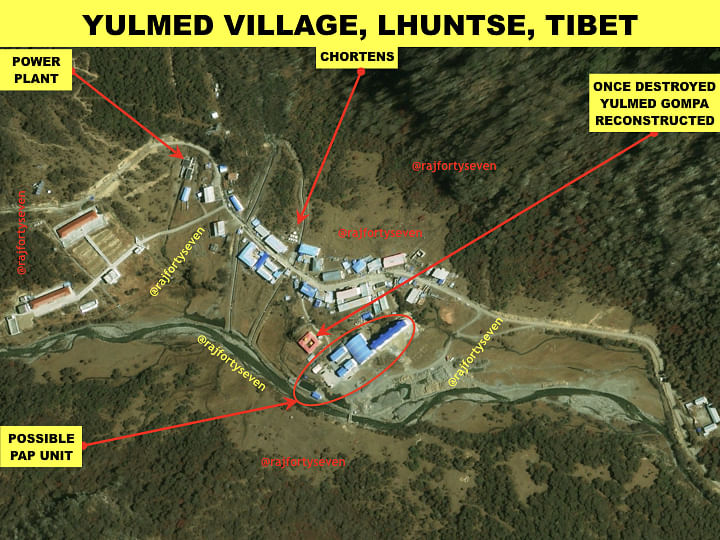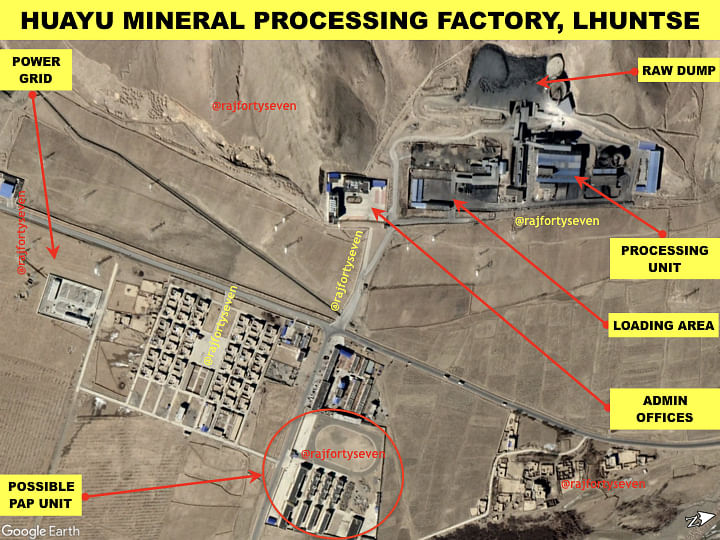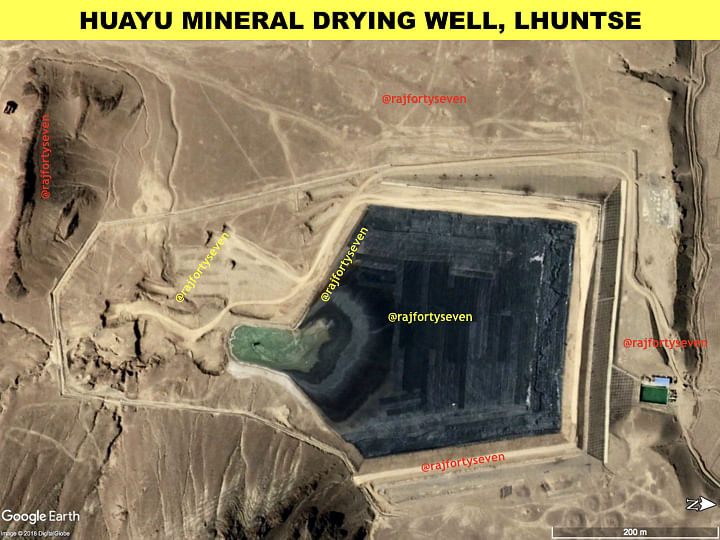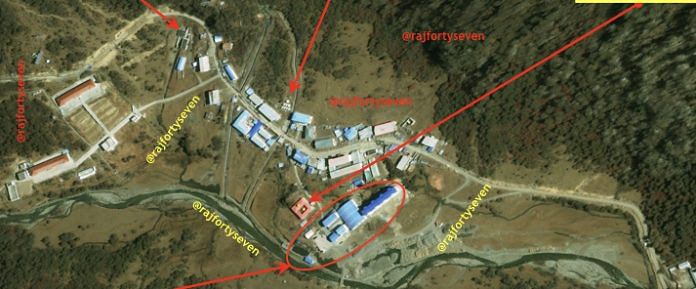New Delhi has taken note of the exploitation of minerals in such close proximity to the Indian border in the Tibetan Autonomous region, and probably protected by the People’s Armed Police (PAP).
New Delhi: Barely 15 km from the Upper Subansiri district of Arunachal Pradesh, on the other side of the border, a gold and rare earth mineral rush is underway in the Tibetan village of Yulmed (Yumei in Chinese) in Lhunze county, with satellite images showing a modern factory with raw material dumped alongside as well as other processing facilities.
The exploitation of minerals in such close proximity to the Indian border in the Tibetan Autonomous region, and probably protected by the People’s Armed Police (PAP), has been taken note of in New Delhi. It also raises the prospects of similar mineral presence on the Indian side. But so far, this area has been poorly surveyed geologically.

There are no traces of a Tibetan village seen in satellite pictures from five years ago, 2013. The mud huts of yore have given way to multi-storied buildings. The old gompa (monastery) has been demolished, but a new one seems to have been built by the Chinese in its place.
When Chinese Communist Party secretary Wu Yinglie visited the area in October 2016, it was still called the “the most sparsely populated town in China”. Today, it is a modern Chinese village that has grown much larger than the 32 families who used to live here.
According to noted Tibetologist Claude Arpi, Longju village, also in Lhunze county, not far from the current prospecting for minerals in Yulmed, was the site where Indian and Chinese troops first exchanged fire in August 1959, not long after the Dalai Lama escaped Tibet for India in March.

Today, the small village has suddenly expanded with mainly Han Chinese officials performing various soil and water tests. According to ground reports, the results of most tests have been positive for gold and many rare earth minerals.
If gold and other rare earths are indeed found in Yulmed-Yumai, new worry lines will emerge in Delhi. The idea of hundreds of Chinese engineers, scientists, geologists etc equipped with the most modern equipment descending upon the borders of Arunachal Pradesh, determined and capable of transforming the landlocked south Himalayas into a zone of frenetic economic activity, has enormous implications for India.

Having undertaken a “reset” in the bilateral relationship during PM Modi’s April visit to Wuhan, wherein India implicitly conceded that it did not seek to challenge China, Delhi is certainly hoping for a modicum of transparency in its relationship with Beijing.
Certainly, the unusual publicity was sparked in October last year when two Tibetan nomad sisters in Yulmed wrote to President Xi. The Chinese President replied, encouraging the girls and their family to “set down rooms in the border area, safeguard Chinese territory and develop their hometown”.
Not every day does a Chinese President write to simple folk, but when these folk live within shouting distance of the Indian border, the alarm bells should be ringing hard, if they are not already.
The Chinese are making tremendous efforts to improve road infrastructure in this area so that transportation of raw materials for the mineral processing factories becomes easy.
It is learned that deep tunnels are being dug, but they cannot be located due to poor satellite coverage over this part of Tibet. The so-called ‘Gold Rush’ is likely to create additional flashpoints for already strained India-China relations.
It seems quite a bit of activity is underway. According to the South China Morning Post, “Enormous, deep tunnels have been dug into the mountains along the military confrontation line, allowing thousands of tonnes of ore to be loaded and transported out by trucks daily, along roads built through every village. Extensive power lines and communication networks have been established, while construction is underway on an airport that can handle passenger jets.”
China defends mining operations
China, meanwhile, has defended its large-scale mining operations in Lhunze county, asserting its “sovereign right” over the area adjacent to Arunachal Pradesh. According to the South China Morning Post report, China has discovered a huge trove of gold, silver and other precious minerals valued at $60 billion in the area. The report, labelled “groundless” by Beijing, also hints at the mining operations being part of China’s efforts to take over Arunachal Pradesh, which the country considers south Tibet.
“I have also noted the report mentioned by you. The area mentioned by the report totally belongs to China,” Chinese foreign ministry spokesman Lu Kang told a press briefing in Beijing when asked about the report.
“China conducts regular geological and scientific research on its own territory. It is completely within China’s sovereignty. China always attaches importance to protecting ecological environment. We hope relevant media can refrain from creating hype based on a groundless report,” he said.



